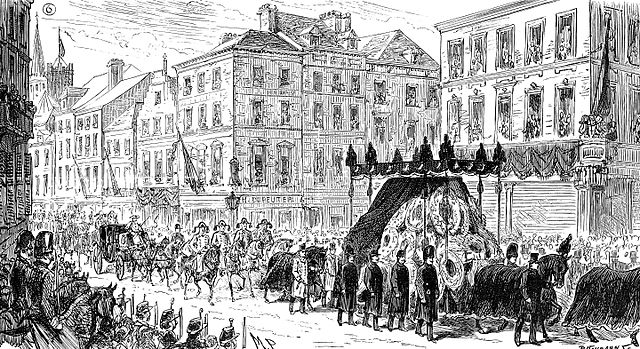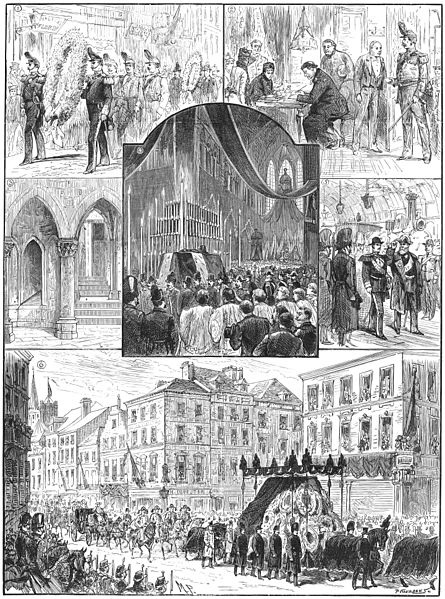Some information about Baudouin:
He was raised as the heir to the throne following the birth of his cousin Clementine in 1872.
His education was entrusted to the liberal Jules Bosmans, which "provoked strong opposition in the ultramontane press."
He made himself popular in Flanders by delivering a speech in Dutch and by standing for the unofficial Flemish anthem. The Flemish, who felt discriminated against, regarded him as their saviour.
At the age of 15 he was sent to the Royal Military School, where (unlike his father and uncle) he would receive a military education in close contact with the other students.
In 1889 he assumed command of the 263 men of the first regiment of the carabiniers.
In 1891 he caught a cold that rapidly developed into bronchitis, resulting in his death at 22.
"For many observers, Baudouin embodied both military duty and the fulfillment of bourgeois values. In order to attract popularity his simple lifestyle and his demonstrative solidarity with the soldiers were deliberately made visible and known to the public."
His death "mobilized socialist and Flamingant sentiments in the politically opinionated national press." Flemish papers "portrayed the deceased heir presumptive as their 'Flemish Prince' who had symbolized the end of discrimination and represented hope for the future." But francophone papers were "noticeably unkeen to recall the Flemish sympathies of the prince and neglected or minimized Baudouin's Dutch speeches in their memorial articles."
King Leopold II made all the major decisions regarding Baudouin's funeral and burial. "He clearly found it difficult that royal funerals had become increasingly national and public events. Many non-related foreign monarchs and heads of state intended to send a special mission to Baudouin's funeral, but Leopold II declined them all. The Minister of Foreign Affairs and the Prime Minister asked Leopold to reconsider this decision, indicating that an increased sense of theatricality and national representation of monarchies had become the expected norm." At the same time, "he did not dare to refuse the delegation from the German Emperor Wilhelm II and personally and with full military honours received Prince Heinrich of Prussia, the emperor's brother, at the train station."
Queen Victoria sent her son-in-law Prince Henry of Battenberg.
"A small deputation of the Prussian regiment of which Baudouin was captain was also allowed to participate in the funeral in Brussels and Prince Albert, the new heir presumptive, walked next to Heinrich of Prussia in his uniform of the Royal Military School."
Source: Christoph De Spiegeleer, "1834-1869-1891: The Untimely Deaths of Three Heirs to the Belgian Throne," in
Sons and Heirs: Succession and Political Culture in Nineteenth-Century Europe, ed. Frank Lorenz Muller and Heidi Mehrkens (Palgrave Macmillan, 2016), pp. 179-195.
____________________
More detailed information including pictures of Baudouin:
The Esoteric Curiosa: Heir Interrupted! The Sudden Loss Of Belgium's Golden Prince!





